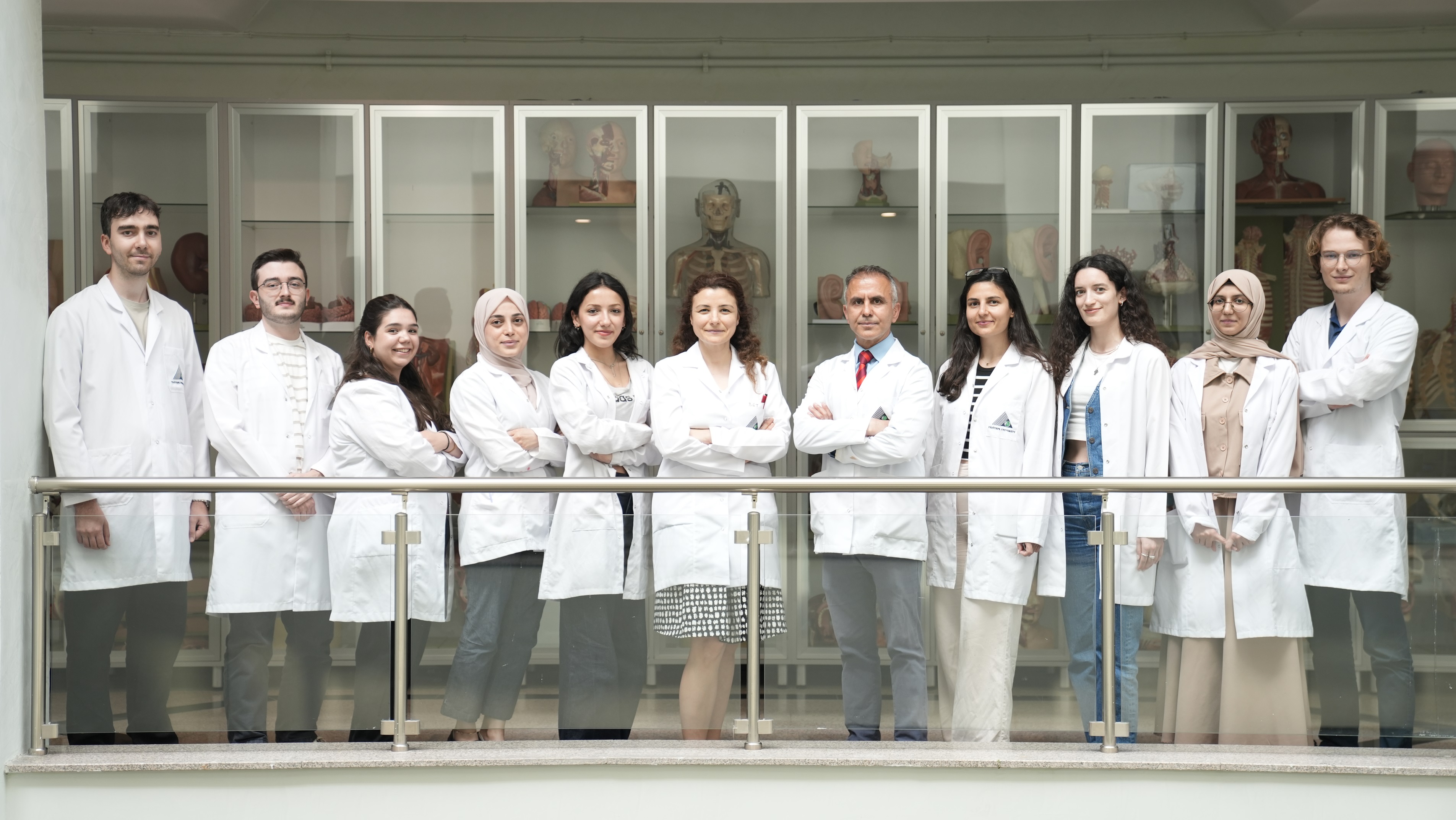A Groundbreaking Diagnostic Approach in Colorectal Cancer: New Testing Method Shows Promise

The invisible microbes living in our gut have now become important enough to help save lives.. In a groundbreaking study involving researchers from Yeditepe University Faculty of Medicine, scientists have shown that bacteria found in the gut may be used—through artificial intelligence—to support the early diagnosis of colorectal cancer.
The study was published in Nature Medicine (Impact Factor: 59.2), one of the world’s most respected medical journals. This achievement carries highly significant implications for public health.
Early Diagnosis Possible with a Single Stool Sample
Colorectal cancer, one of the most common and fatal types of cancer both globally and in Türkiye, often progresses without showing any symptoms until reaching an advanced stage. For this reason, early diagnosis plays a critical, life-saving role. However, current screening methods such as colonoscopy are not always widely implemented and may not be accessible to large segments of the population.
Faculty members at Yeditepe University have proposed a highly promising solution to this issue. They developed a method that uses machine learning to analyze gut bacteria and can predict the presence of colorectal cancer with 85% accuracy—using only a single stool sample. This approach enables the disease to be identified before any symptoms appear, making it possible to begin treatment at an earlier stage.
A Study That Made an Impact Beyond Türkiye
The study was conducted with the contributions of Assoc. Prof. Bilge Güvenç Tuna from the Department of Biophysics, Prof. Soner Doğan from the Department of Medical Biology at Yeditepe University Faculty of Medicine, and their PhD student, Nazım Arda Keleş.
In addition to the researchers from Türkiye, the project included scientists from Harvard University, IEO Milan, and other internationally recognized names in the field of microbiome research. One of the leading figures was Prof. Nicola Segata, a renowned expert widely regarded as a pioneer in microbiome science.
Gut Bacteria Could Act as Biomarkers for Cancer
Researchers analyzed microbiome data from 3,741 individuals across 10 countries, including patients with colorectal cancer, individuals with precancerous lesions, and healthy participants.
The study revealed several notable findings:
• Nineteen previously unidentified bacterial species were discovered in the gut.
• Certain bacterial species were found exclusively in the intestines of patients with advanced-stage cancer.
• A correlation was observed between the tumor’s location in the colon (right or left side) and the presence of bacteria originating from the oral cavity.
• Specific subtypes of Fusobacterium nucleatum were shown to be directly associated with cancer development.
A Turning Point in Cancer Research: Microbes and AI Lead the Way
These findings may support both early cancer detection and the development of personalized treatment methods. Assoc. Prof. Bilge Güvenç Tuna, one of the researchers of the study, notes that this research paves the way for the development of microbiota-based diagnostic tests.
In the future, such tests could be included in large-scale cancer screening programs accessible to the general population. Integrating this method into routine health screenings could help save thousands of lives each year through early detection. In this respect, the study holds great significance not only for the scientific community, but also in terms of its societal benefit..
21st Publication from Turkey in Nature Medicine
Another noteworthy aspect of the study is the platform in which it was published. Nature Medicine is one of the most prestigious scientific journals in the field of medicine. To date, only 20 articles affiliated with institutions in Türkiye have been published in this journal. With this study, supported by Yeditepe University, the number has now reached 21.
The Yeditepe University administration has shared this achievement with the public and announced its continued support for all research contributing to the international scientific community.
For those who wish to access the article:
https://www.nature.com/articles/s41591-025-03693-9
Press: NTV | Sabah | Yeni Şafak | AA | DHA | Son Dakika